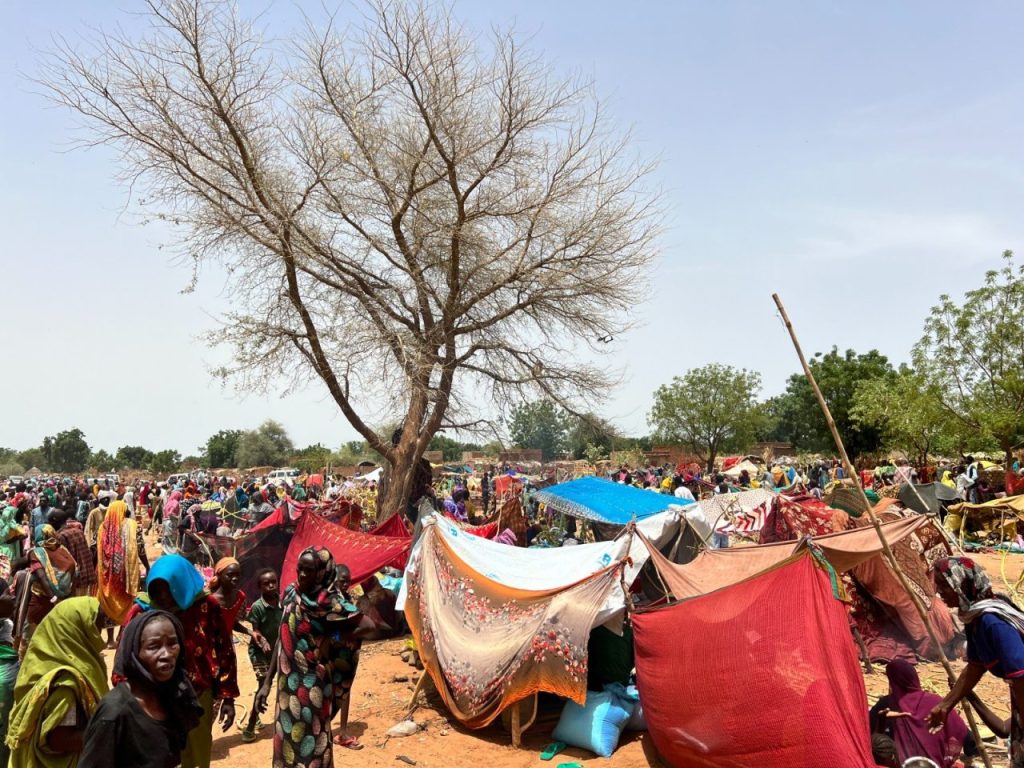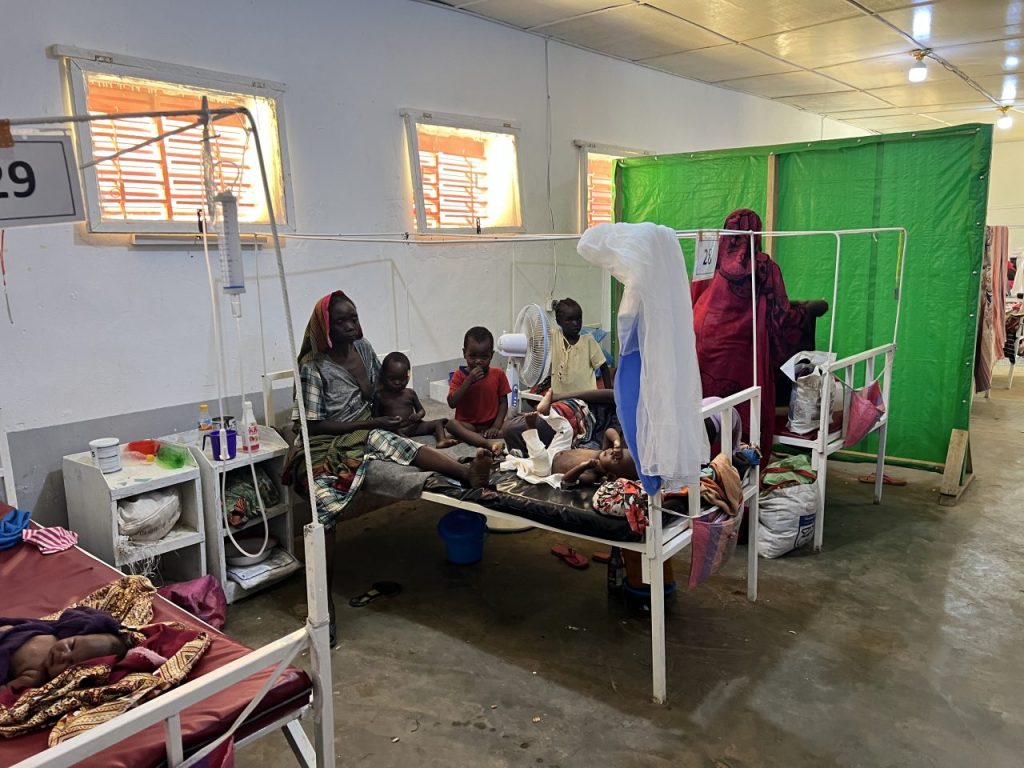Sudanese refugees continue to flood into Chad following the conflict that rages in their country, particularly in West Darfur. Among them are infants, children and adolescents who are vulnerable and, in some cases, severely injured. The pediatric ward at the MSF-supported hospital in Adré has remained constantly full, while around sixty children were treated in the surgical unit between 15 and 21 June.
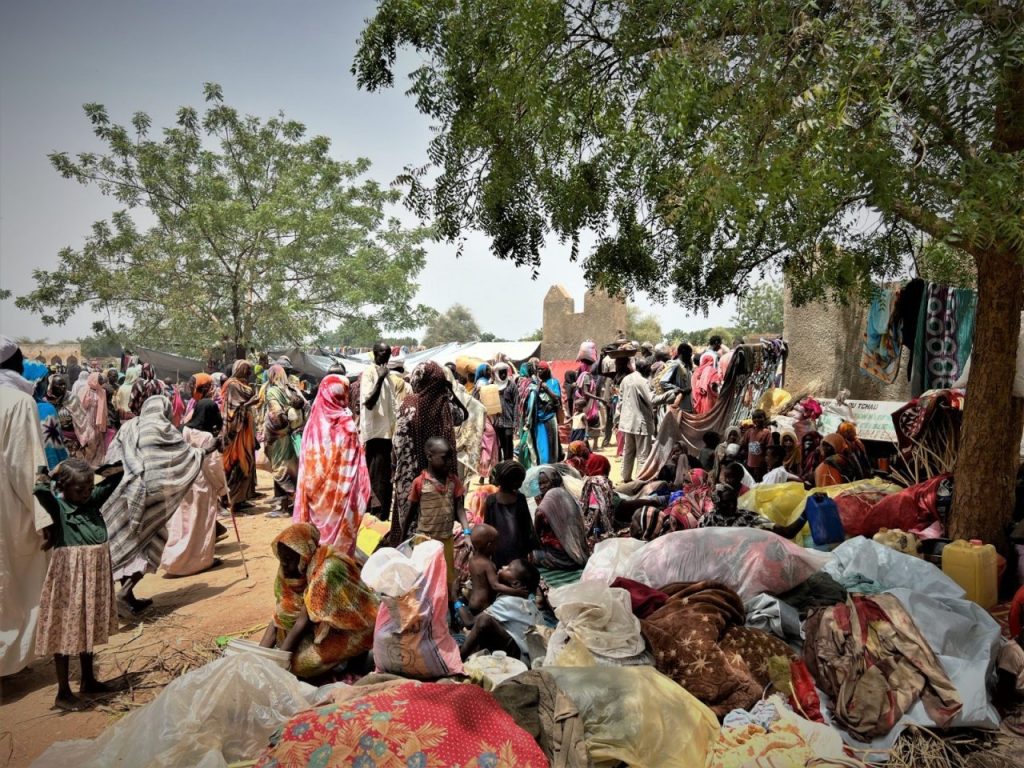
Around 180 children are currently being treated in the pediatric and nutritional units of the Adré hospital. The arrival of thousands of refugee children from El-Geneina, the capital of West Darfur, has further increased the need for pediatric care, in a context where the agricultural hunger gap and the rainy season have led to extremely high levels of malnutrition and malaria among the youngest children. “There are at least two children per bed in the pediatric ward. We plan to rapidly increase the capacity by opening 50 additional beds in tents,” explains Raphael Kananga, project coordinator in Adré.
MSF medical staff are seeing fever, acute respiratory infections, diarrhea, malnutrition and cases of malaria among the youngest patients.
“Oula, my 7-month-old daughter, has diarrhea. She doesn’t eat and cries all the time,” explains Nasra, her mother, who is also ill. They both endured traumatic events and deprivation as they fled to Chad. While watching over Oula in her hospital bed, Nasra tells us she had no intention of leaving Sudan and her town of El-Geneina initially, which is once again plagued by violence after the conflict outbreak between the Sudanese armed forces and the Rapid Support Forces (RSF) in Sudan in mid-April. However, as the attacks intensified, she was forced to move to another neighborhood with her infant son and eldest daughter, aged 7, as well as her mother and four of her sisters. They took refuge in a group shelter where they stayed for 40 days before a militia attacked them, leaving them with only two options: either leave for Chad or die.
She explains that her group was stopped by militiamen before arriving in Adré, near the town of Al Furqan: “They arrested us, beat us up and humiliated us”. Nasra has found safety and care at the hospital in Adré, and is now reassured about Oula’s state of health. The doctors have confirmed that she should be better within a week.
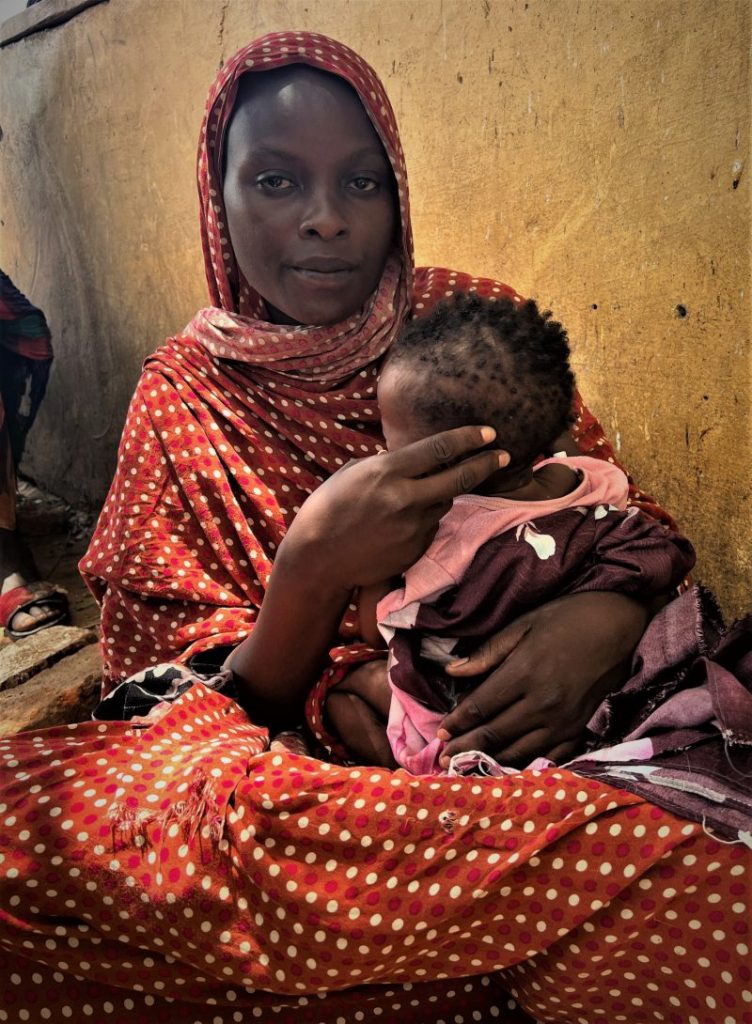
Eman, 11 months old, also showed symptoms of fever and malnutrition, and was treated at the Adré pediatric hospital. Hawaya explains her reasons for fleeing: “My husband and I have 6 children, so at first we tried to survive and adapt to the security situation by moving around the town of El-Geneina. Last week, my husband went out and we never saw him again. I no longer had anyone to protect and support us. Two days after his disappearance, I decided to leave for Chad with my children”.
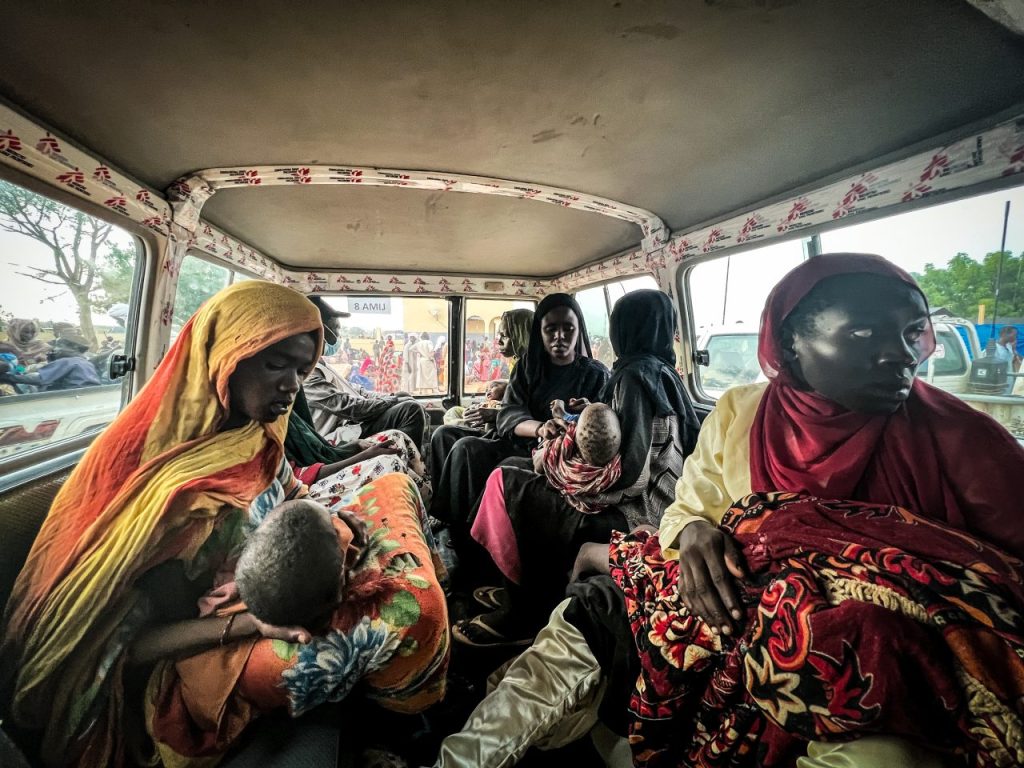
A number of cases of children arriving with no relatives have also been reported to our teams. They include 5-year-old Muhammad and his very young sister, only 6 months old.
There are also children and adolescents who have been seriously injured – they are cared for in the tents that MSF staff have set up to house a surgical unit. Such is the case of 15-year-old Ahmad, who suffered serious burns. His neighborhood in El-Geneina was attacked two weeks ago and the shots fired towards his house hit the petrol generator located just behind his bedroom.
Outside the hospital, children and adolescents make up a large proportion of the 15,000 refugees who have recently settled in the town of Adré, particularly around the Marjan high school.
MSF teams are currently planning a measles vaccination campaign, vitamin A supplementation and deworming for the children on the site.
